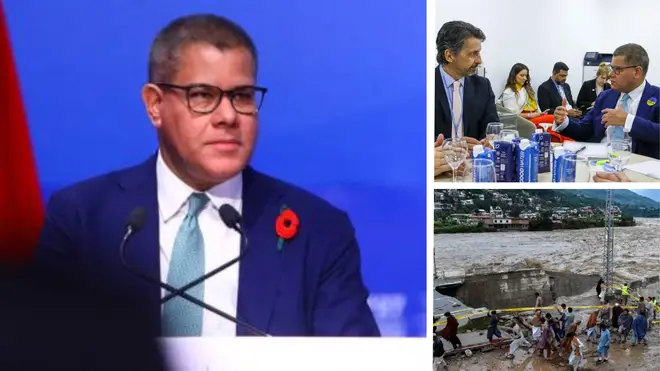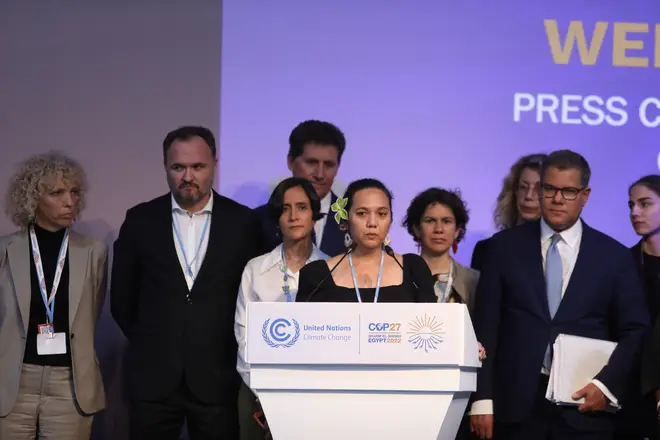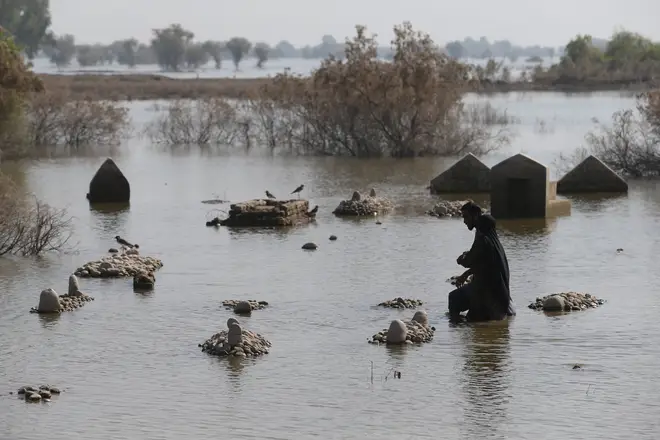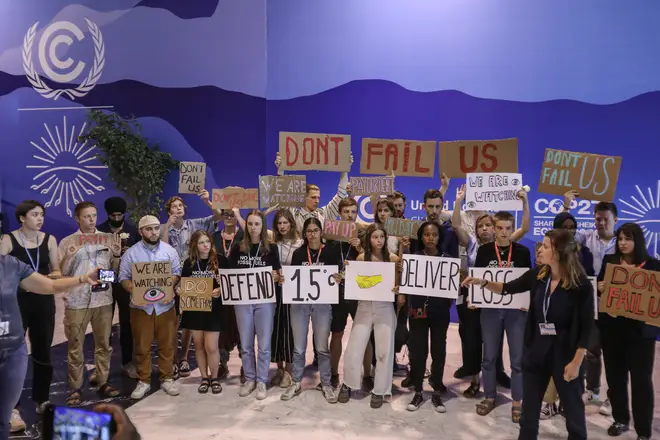
Paul Brand 10am - 12pm
20 November 2022, 07:10 | Updated: 20 November 2022, 07:22

Rich countries have agreed to give developing countries 'loss and damage' payments to help them deal with climate disasters, although the UK and the EU said opportunities had been missed to lower emissions.
The overall larger deal to reduce carbon emissions appeared to have been watered down in negotiations, with the agreement mentioning 'low emissions' energy sources - which could leave open the door to more fossil fuel use, like gas.
The UK's Alok Sharma said the agreement was disappointing, in a passionate speech.
"Friends, I said in Glasgow that the pulse of 1.5 degrees was weak. Unfortunately it remains on life support. All of us need to look ourselves in the mirror and consider if we have fully risen to the challenge.

"I promise you if we do not step up soon and rise above the minute to midnight battles to hold the line we will all be found wanting.
"Each of us will have to explain that to our citizens to the world’s most vulnerable countries and communities and ultimately to the children and grandchildren to whom many of us now go home."
Read more: Rishi Sunak to call for ‘global mission for clean growth’ at Cop27

EU negotiator Frans Timmermans agreed that the deal was not good enough.
He said: "This is the make or break decade," he says. "But what we have in front of us is not enough of a step forward for people and planet"
He added: "Too many parties are not ready to make progress in the fight against the climate crisis. Some are afraid of the transition ahead and the cost of change."
But the 'loss and damages' deal is a big victory for hosts Egypt, and many other poorer countries like Pakistan, which has been. devastated by floods this year.
"This is how a 30-year-old journey of ours has finally, we hope, found fruition today," said Pakistan Climate Minister Sherry Rehman, who often took the lead for the world's poorest nations.

This caller says it's in our interest to help countries in the developing world mitigate against climate change
One-third of her nation was submerged this summer by a devastating flood and she and other officials used the motto: "What went on in Pakistan will not stay in Pakistan."
Sameh Choukry, Egyptian environment minister and host of Cop27, said: "We rose to the occasion. We worked around the clock, day and night, but united in working for one gain, one higher purpose, one common goal. In the end we delivered. We listened to the calls of anguish and despair.”
Maldives Environment Minister Aminath Shauna told the Associated Press on Saturday "that means for countries like ours we will have the mosaic of solutions that we have been advocating for".
It is a reflection of what can be done when the poorest nations remain unified, said Alex Scott, a climate diplomacy expert at the think tank E3G.

Emma Gatten says flooding in Pakistan has pushed the COP27 draft agreement to tackle climate change
"I think this is huge to have governments coming together to actually work out at least the first step of... how to deal with the issue of loss and damage," Ms Scott said.
But like all climate financials, it is one thing to create a fund, it's another to get money flowing in and out, she said.
The developed world still has not kept its 2009 pledge to spend 100 billion dollars (£84 billion) a year in other climate aid - designed to help poor nations develop green energy and adapt to future warming.
The agreement "offers hope to the vulnerable people that they will get help to recover from climate disasters and rebuild their lives", said Harjeet Singh, head of global political strategy at Climate Action Network International.
The Egyptian presidency, which had been under criticism by all sides, proposed a new loss and damage deal on Saturday afternoon and within a couple hours an agreement was struck.
Norway's negotiator said it was not so much the Egyptians but countries working together that achieved the deal.

Germany climate envoy Jennifer Morgan and Chilean Environment Minister Maisa Rojas, who shepherded the deal on to the agenda and to the finish line, hugged each other after passage, posed for a photo and said "yeah, we made it".
According to the agreement, the fund would initially draw on contributions from developed countries and other private and public sources such as international financial institutions.
While major emerging economies such as China would not initially be required to contribute, that option remains on the table and will be negotiated over the coming years.
This is a key demand by the European Union and the United States, who argue that China and other large polluters currently classified as developing countries have the financial clout and responsibility to pay their way.
The fund would be largely aimed at the most vulnerable nations, though there would be room for middle-income countries that are severely battered by climate disasters to get aid.